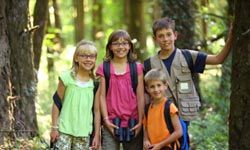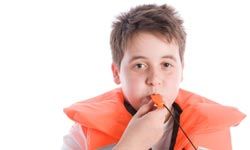In August 2011, a 12-year-old Boy Scout named Jared Ropelato put the Scout motto "Be prepared" to a true test. After wandering away during a fishing activity, he ended up miles away from his group, and was forced to spend 20 hours in the woods alone, as temperatures dropped into the 40s overnight.
How did young Jared survive? He was prepared. Having attended Scout camp the prior summer, he remembered how to build a lean-to, a hole big enough to get inside that he covered with dirt and leaves to protect himself from animals and the elements.
Advertisement
While losing a child on a camping trip is a parent's nightmare, this story show how preparation can help increase the chances of a happy ending. For some, preparedness means having the gear; for others, it means having the know-how. The truth is, it's both. You can have the best supplies money can buy, but you need to know how to use them. Likewise, you can be an Eagle Scout five times over, but there's nothing like having a water-proof tent in a deluge. And when you're camping with the family, it's not about proving you have the skills of MacGyver; it's about having fun, staying safe and creating some happy family memories.
So, before you plan your next trip to Yosemite or your local lakefront campground, remember our tips on emergency preparedness. We'll start with something a body can't do without.


